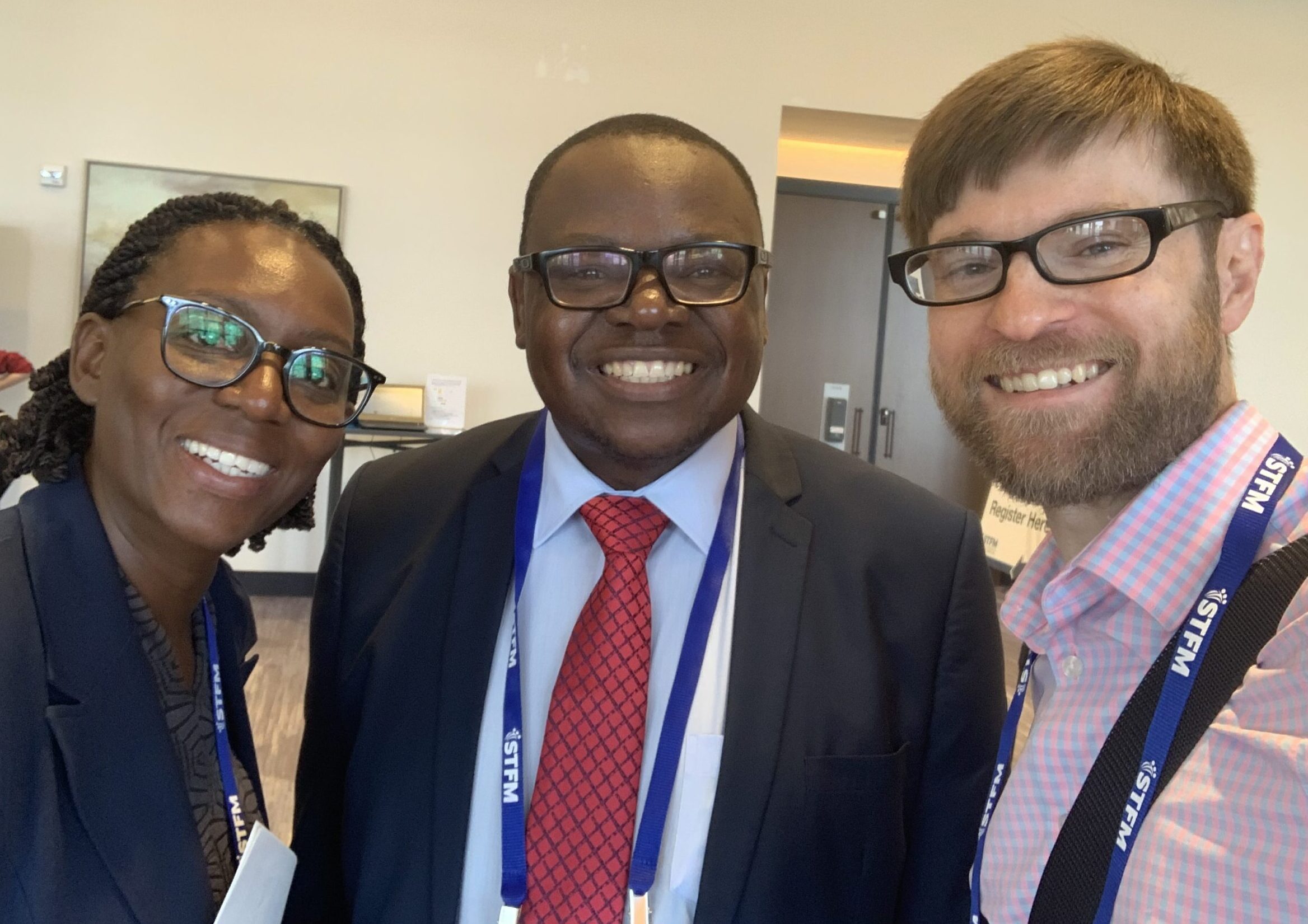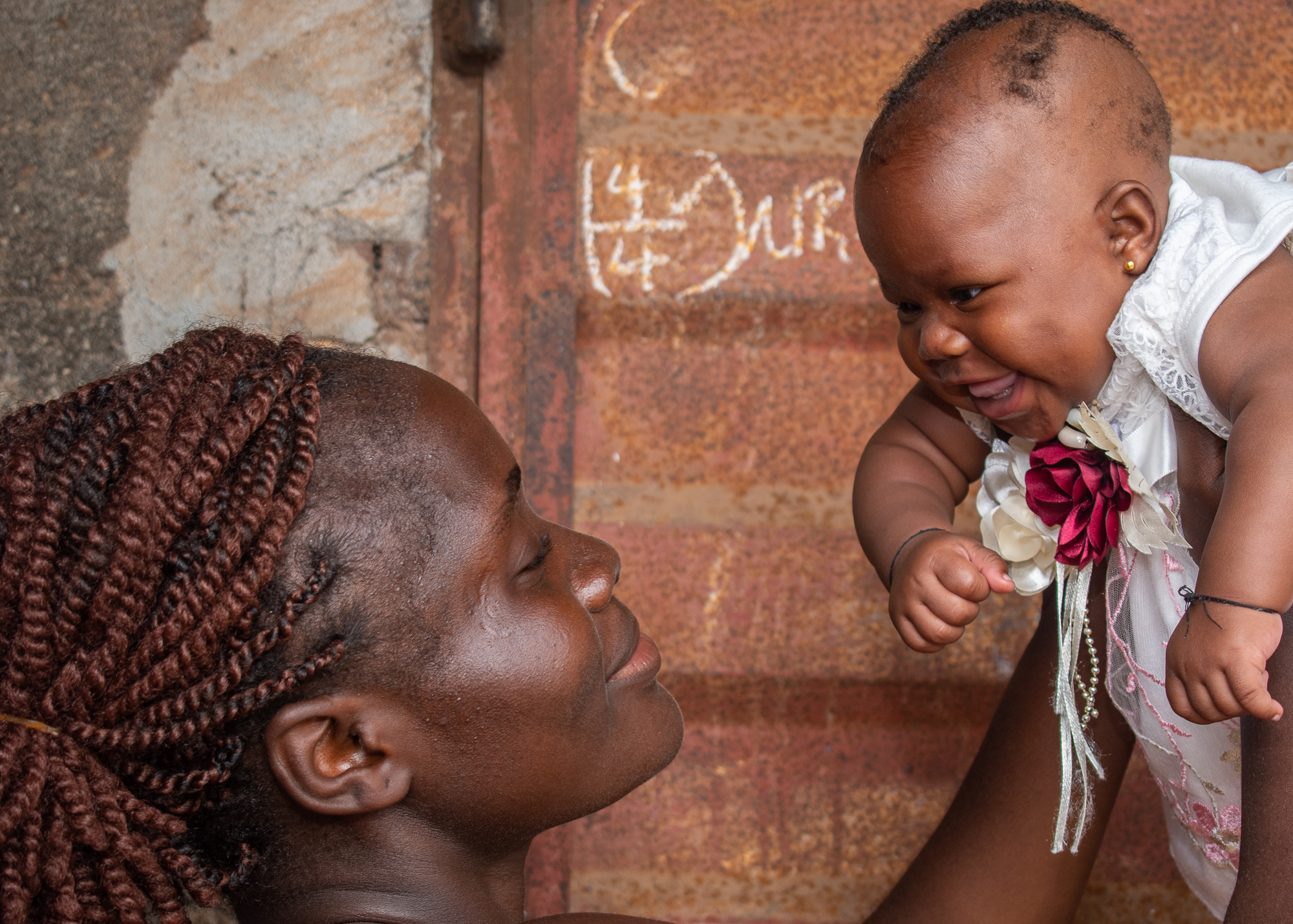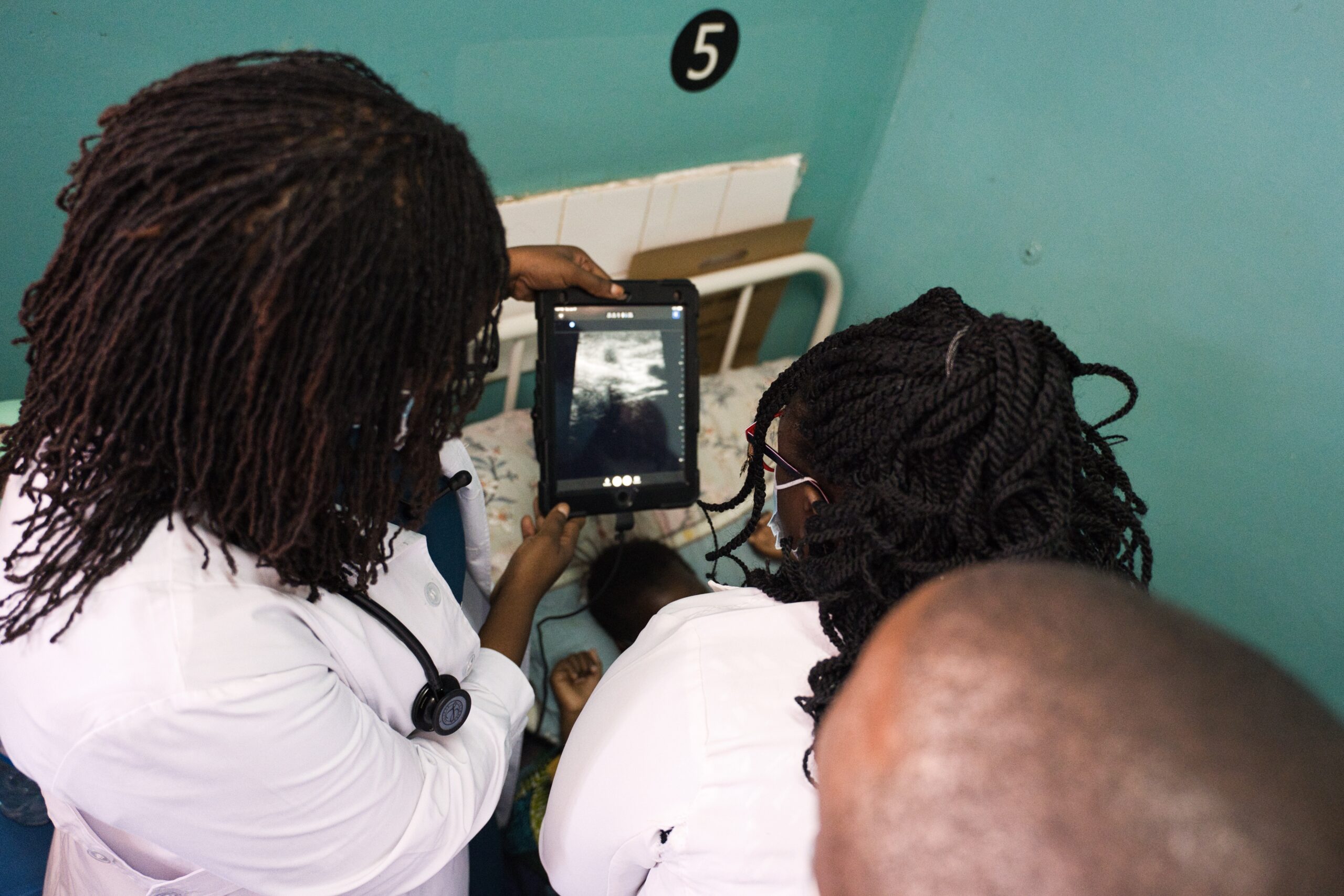
Educating Zambia’s First Family Medicine Doctors
Seed Global Health and The University of Zambia launched a partnership in 2019 to create Zambia’s first family medicine master of medicine program. The program’s aim is to strengthen family medicine training and increase the number of practice-ready family physicians able to deliver high-quality primary care to patients of all ages throughout Zambia.
Seed Global Health Associate Director of Family Medicine Dr. Matthew Haldeman recently caught up with two graduates – and now leaders – of the program, Dr. Evaristo Kunka, the program coordinator in the Department of Community and Family Medicine at The University of Zambia, and Dr. Mpundu Makasa, a family medicine specialist and public health specialist at the Lusaka District Health Office.
They spoke at the Society for Teachers of Family Medicine Conference in Tampa, Florida, where they were presenting on the successes of the program.
The conversation has been edited for length and clarity.
Dr. Haldeman: Family medicine is a new specialty in Zambia with the potential to strengthen primary care across the country. For readers who might not be familiar with Zambia’s health system, can you briefly explain how training and deploying a cadre of family doctors can have such a transformative impact on primary care?
Dr. Mpundu Makasa: First and foremost, family medicine is a new specialty in Zambia. We have not had any primary health care specialists in this country. Most of our facilities at the primary health care level are managed by doctors who are straight from medical school; they don’t have any postgraduate training. We believe that by training doctors in family medicine, we’ll be able to improve the care that is provided at the primary health care level.
Dr. Evaristo Kunka: We look at family physicians as potential leaders in primary health care. And so as they take up leadership roles in [health] facilities, our expectation will be that the quality of health will improve, and they will build teams that are going to have the capacity to provide high-quality health services.
Dr. Haldeman: In your view, what has been the biggest success of the family medicine specialty program at the University of Zambia so far?
Dr. Kunka: First and foremost, I think that we can think of the sites where the training is taking place. We have two sites at the moment, these being Chilenje, a first-level hospital, and Kanyama, also a first-level hospital. I think that in both sites, the program has been able to attract the doctors within these facilities to join the program. And I think this was a result of what they saw [in terms of] how the program was being taught, and the difference that the program was making in their facilities. I believe this is what made our colleagues join the program.
And secondly, I strongly believe that the program has made a difference in terms of the quality management of patients in the two facilities. There’s some evidence that this is happening, based on the fact that we have both the district health office and the provincial health office advocating for the program to expand from the current two facilities to include at least two other first-level hospitals. And so for us, that is evidence that the program is really scoring successes.
Dr. Makasa: The fact that family medicine was introduced in [Zambia], that was a huge success. Also, taking into account all the preparatory work that had been done. There was a lot of background work that went in for almost five years before finally, the program [started]. So that was a huge success.
And then the fact that we’ve now been running the program for five years continuously and we’ve seen an increase in the number of students, without even having to advertise the last couple of years, is a huge success. And it speaks volumes and it demonstrates the fact that there is high demand. It shows that the work that we did, and that people are now able to understand and appreciate, and therefore the demand is actually high for people to enroll in the program.
I must mention the fact that Seed also has played a very, very key role. I think without Seed, [it] would have been very difficult for us to talk about all these successes. So it’s important for us to be able to acknowledge that.
Dr. Haldeman: Looking ahead, what are the next critical steps to rolling out family medicine successfully in Zambia?
Dr. Kunka: The first-level hospitals in Lusaka should have at least two family physicians, they need to give us an opportunity for us to see the true impact of family medicine within these facilities. And that will further help us to lobby for the program in Zambia with a view that the hospitals that are outside of Lusaka, should have family physicians as the key personnel. I also feel like we need to think of expanding the program whether it is away from the center, or whether it’s within Lusaka, to possibly grow it probably even out of UNZA and get it to another institution such as every medical university. Yeah, because I think that will really be speaking to the national vision, or the National Strategic Plan, which foresees a situation where, within the next five, six years, we should have at least 60 family physicians. I think that if we’re able to broaden our base in that way, we may be able to achieve those goals.
Dr. Masaka: In addition to what Dr. Kunka said, I still feel that the program itself needs to be strengthened. I don’t think it has grown to that point where we can say it’s a mature program. So we need to stretch and further grow it. I think another aspect is faculty. In order to ensure sustainability of the program, we need to ensure that we have our own faculty support, perhaps have a targeted [faculty] development program. The aspect of research, I think, is another one. More research will be able to bring more new knowledge that we can incorporate into our practice. And also, partnerships and funding, just to ensure that the program, again, is self-sustaining. It may require grant applications, but having some funds that can support the program, [for example] exchange programs for students, we feel that’s very important.
Dr. Haldeman: What advice and guidance do you have for Seed Global Health as we continue to partner with you and your colleagues at the University of Zambia to advance family medicine?
Dr. Makasa: I think in terms of advice, it’s very simple to say…I think there was a consultative process right from the get go. When Seed expressed interest to work with us, you know, they engaged us, asked us what our needs were. So it was really an approach where we are the ones who are saying, “These are our needs. This is where we’d want you to come in to support us.” But at some point, Seed was also able to say okay, this is how far we can go, this we can do, this we are not able to do, but we recognize that you know, certain things are also beyond their control. So I like the support and they continue to engage us.
Dr. Kunka: Yeah, I totally agree with Dr. Makasa. I feel like the involvement with the Seed partnership has been very consultative. And I think in a way, they’ve provided guidance. But I think by and large, they leave it to us to implement what we want to implement, and so in a way to chart our own growth. Yeah, well, they’re supporting us with the resources to be able to do so I think that the only thing I can say is that I’m happy with the direction Seed does take in supporting the investors on growing this program. So I think that I would be too happy to see this kind of progression continuing. And we hope that at the end of the day, we not only see the support to educators, but also begin to see that success being developed within the country so that we can not only just grow the program, but at the end of the day, we should be comfortable to move out of schools and probably begin the program as a public institution. I’m really happy with the way Seed has managed admission so far.
Read more about Seed Global Health’s work in Zambia here.
About the interviewees
Dr. Mpundu Makasa (top right) is the inaugural registrar and first-ever graduate of The University of Zambia’s family medicine master of medicine (MMed) program and is currently transitioning to become one of the program’s first trained faculty. Dr. Makasa has been pivotal in the establishment of family medicine as a medical specialty in Zambia. Dr. Makasa graduated from the Wroclaw School of Medicine in Poland in 1994, and she completed an MPH at UNZA School of Public Health in 2002. She completed a PhD at the University of Bergen in Norway.
Originally from the Copperbelt region of Zambia, Dr. Evaristo Kunka (top center) completed medical school at University of Zambia School of Medicine. He has been a junior medical officer at Ndola Central Hospital and a senior medical officer at Siavonga District Hospital. He later served as the district health officer at Masaiti Health Office, where he served for over 10 years. In 2018 he enrolled in the family medicine MMed program at UNZA. His research interests include family medicine education and point-of-care ultrasound in low-resource settings.

